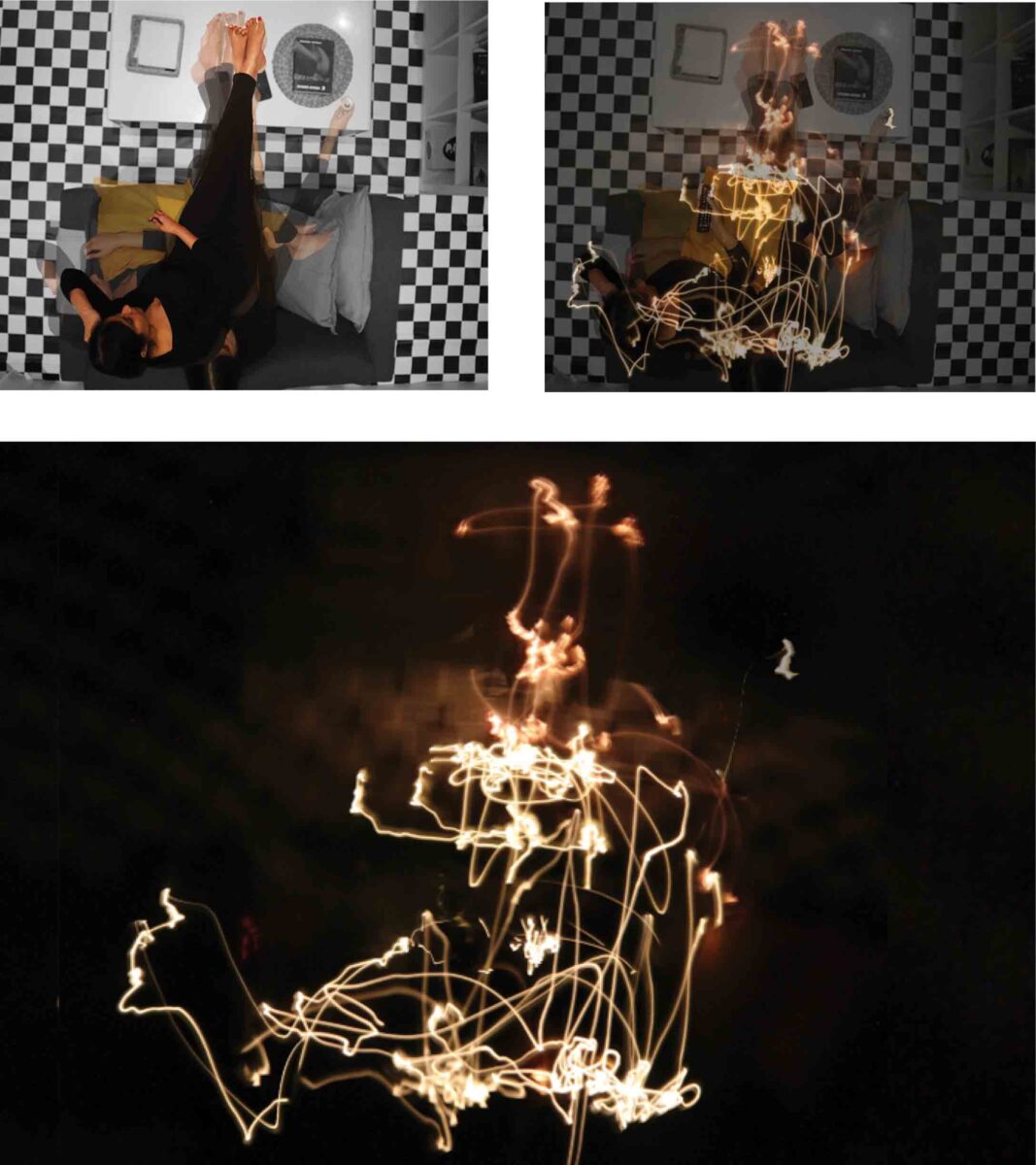Kanaka Thakker MA Interior Architecture

The Extended Body
THIS DISSERTATION CONSIDERS the relationship between the body and its surrounding space, conducted through extensive study of various fields like ergonomics, anthropology, psychology, sociology and philosophy. The thesis began as an investigation of compact formats of living for non-family units and to understand how the body navigates tight spaces. The analysis of the body, its movements and gestures while performing daily rituals led the focus of the dissertation to the question ‘how does the body inhabit space?’
Using an auto-ethnographic research methodology to study the act of performing various everyday activities like watching TV, dressing and cooking, it was observed that the body engages with various objects and surfaces, using them as its extensions.
For example, in an activity as simple as sleeping, the body at times starts using objects like pillows, mobile and blanket as extensions of the body and sometimes it sinks into the horizontal and vertical surface of the bed for support. One could almost look at this exchange between the body, objects and surfaces as one entity, that is the ‘Extended Body’. Stating that the ‘Extended Body’ is more complex than allowed for by simple ergonomics and metrics, the dissertation recommends further investigation into this concept to help design more ergonomically-aware habitable spaces. It also proposes applying the concept of the extended body across various scales of built form to design inclusive cities.
